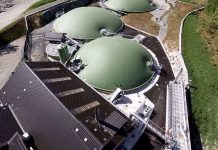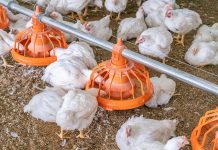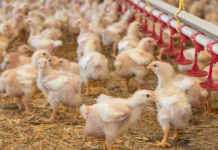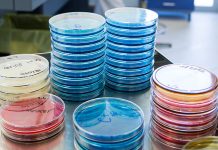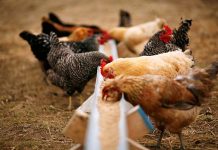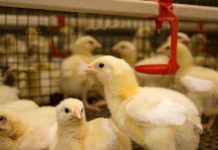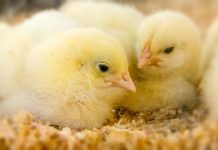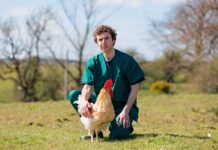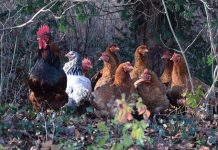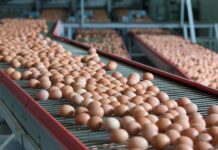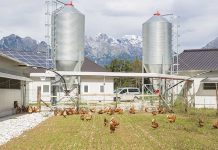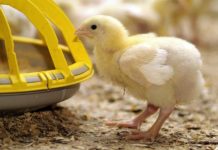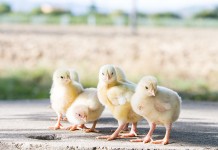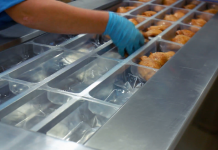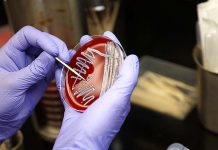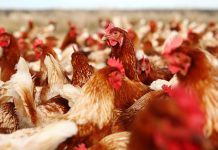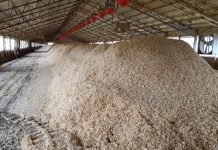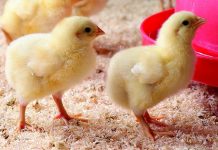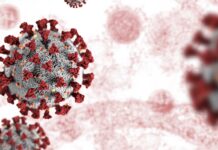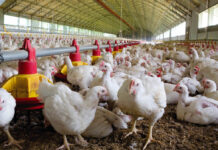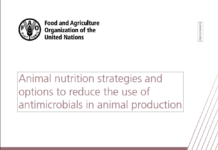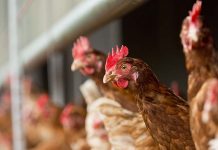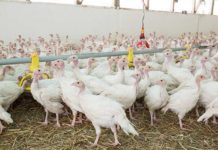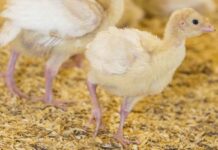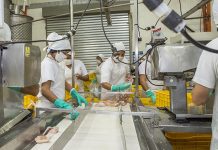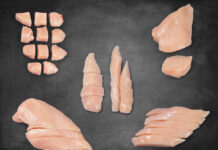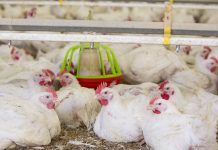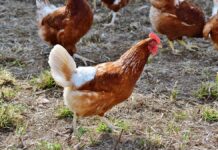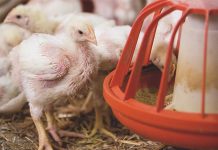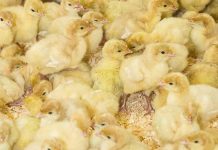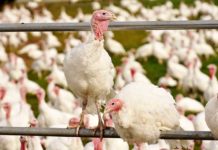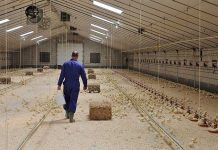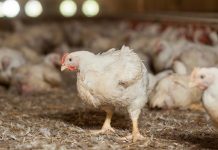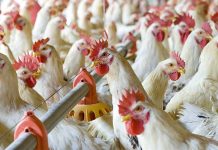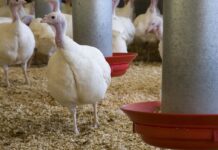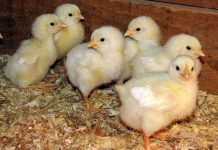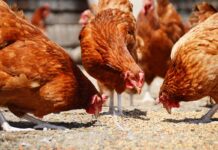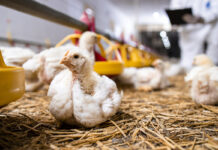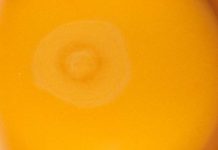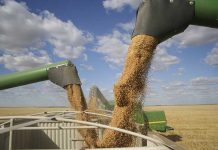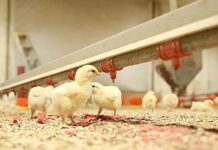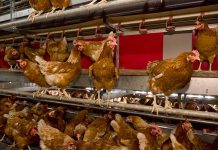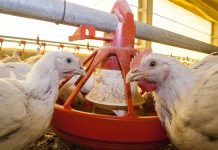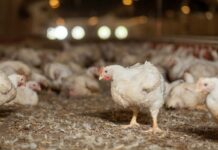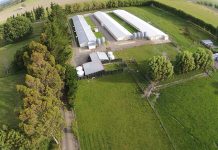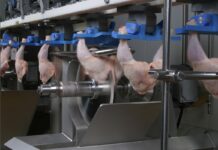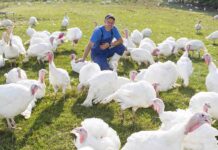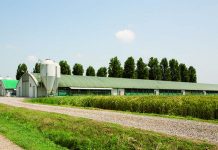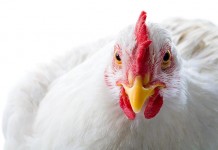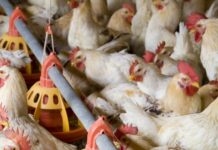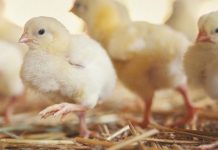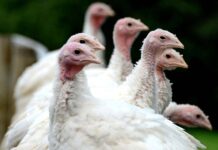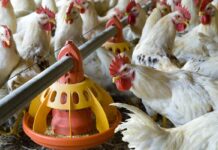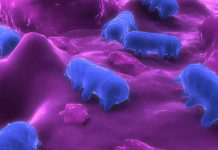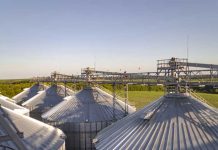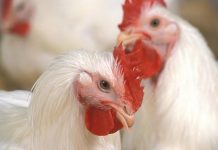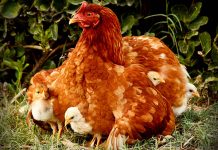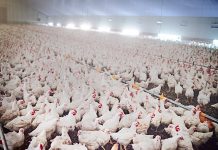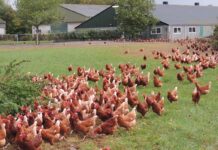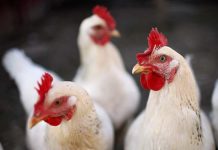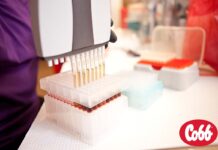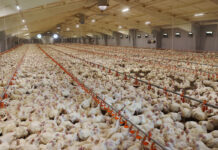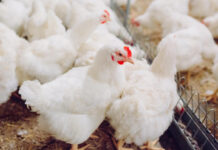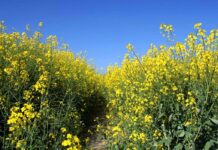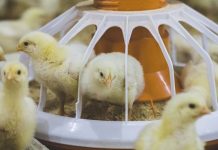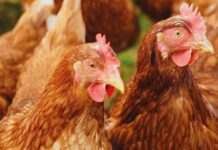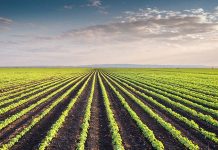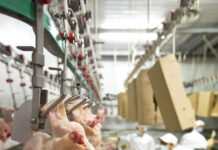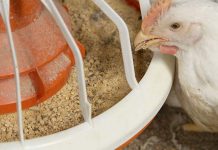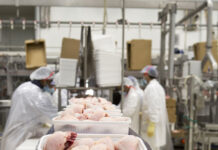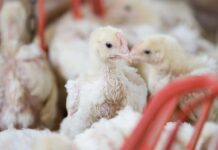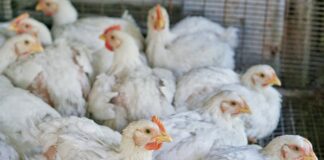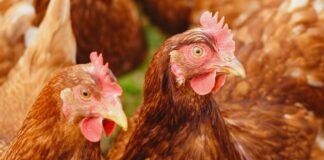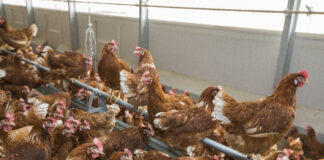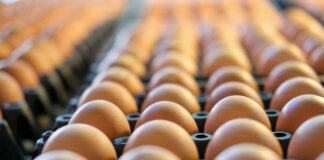The core technology for the sustainability of animal production, environment and green energy
Among various technologies for sustainability in animal production, anaerobic digestion or biogas technology is recognized for its multiple functions and benefits. It breaks down...
Supplementing Bacillus strains in chicken diets
The present study investigated the effects of dietary supplementation of several Bacillus strains on growth performance, intestinal inflammatory and anti-inflammatory cytokines, antioxidants and tight...
Ammonia control during brooding begins when previous flock ends
The level of ammonia young chicks will be exposed to during the first week of their lives is determined to a large extent by...
Major histocompatibility complex and genetic resistance to Infectious Bronchitis Virus
Infectious bronchitis virus (IBV) is an endemic disease of chickens responsible for considerable economic losses to the poultry industry worldwide. IBV replication leads to...
A cost-effective solution to partially replace vitamin E
Oxidative imbalance can reduce animal productivity. If severe, it can lead to inflammation, reduced immune function and increased susceptibility to disease. Livestock producers typically...
Maternal derived antibodies have a role on the impact of Original XPC
The objective of this study was to evaluate the role of maternally derived antibodies on the immune-modulatory capacity of XPC on antigen-specific humoral immune...
Dietary calcium, phytate and non-phytate phosphorus, on IP6 degradation in broilers
The effectiveness of phytase is usually determined under phosphorus or both calcium and phosphorus deficient specifications. Phytase efficacy in terms of increasing available or...
Biodiversity – breeding choice for the markets of today and tomorrow
In this article, Aviagen® Ltd R & D Manager Brendan Duggan discusses the second of Aviagen’s Top 5 Commitments, Biodiversity, and how this commitment...
DNA region in chickens identified for disease resistance
One region in the DNA explains a large difference in possible disease resistance betweenchickens. This was discovered by researchers of Wageningen University & Research...
Lubing presents the new Intermediate drive 2.0 for its egg conveyor systems
Lubing starts its 2022 with a novelty: the new intermediate drive, which was completely redesigned and makes the use of egg conveyors even smoother...
Managing bird behaviour in organic production systems
This topic is presented on by John Brunnquell, the founder and current president of Egg Innovations, which is the largest exclusive producer of free...
Effects of probiotic bacillus Amyloliquefaciens H57 on performance and intestinal microbiota of chickens
Direct fed microbials are a potential probiotic alternative to antibiotic
growth promoters for improving animal production and preventing enteric pathogen
infections. We are studying the effects...
How to ensure a better sustainability in breeding
Aviagen underlines commitment to International Poultry Council’s five priority Sustainable Development Goals for breeding.
The International Poultry Council (IPC) has prioritized five of the United...
Innovative methods for a multidisciplinary risk management in poultry slaughterhouses
The purpose of controls in slaughterhouses is to ensure food safety and quality as well as to monitor animal health and welfare.
Control efficiency can...
Investigating diseases affecting poultry production
Severe diseases such as highly pathogenic avian influenza and velogenic Newcastle disease are still a concern for poultry producers and government agencies alike. Companies...
Informative Processing School in Malaysia
A highly successful four-day processing school was held in Malaysia for Aviagen® personnel to improve their knowledge and understanding of the impact of the...
Chlamydia spp. detected in poultry in Piedmont, Italy
Chlamydia spp. are agents of re-emerging infections in poultry worldwide and deserve attention from a public health perspective due to the well-known zoonotic nature...
Methods for recovery and quantitation of viral nucleic acids from broiler litter
There is a well-recognised problem with both the supply of broiler litter material in some regions, and with the disposal of spent litter. This...
The selection element in whole grain feeding regimes
Seven dietary treatments consisting of a ground grain control and six treatments with pre- and post-pellet whole grain inclusions of 7.5, 15.0 and 30.0%...
How to guard your hatchery against biosecurity threats
Biosecurity, by simple definition, is a set of procedures undertaken to limit the spread of infectious pathogens to a susceptible population. It is, however,...
Effect of the type of diet and the addition of humic substances as growth...
In recent years, humic substances have been tested as growth promoters in animal production and are one of the promising options to face the...
FAO published a report on animal nutrition strategies
FAO’s publication helps producers use nutrition strategies to reduce the use of antibiotics in their farms. Antimicrobial resistance (AMR) is an increasing threat to...
Management techniques for a hot climate
Hot conditions significantly affect the performance of layers, particularly in temperatures higher than 30°C. Getting good technical results requires some adjustments in the management...
Footpad dermatitis in market turkey hens. Bird density and bedding material relationships
Lameness
and poor footpad condition can be major issues for meat-type poultry resulting
in their decreased well-being and decreased productivity. A large body of
research exists for...
Researchers examine the role of APEC in turkey cellulitis
USPOULTRY and the USPOULTRY Foundation announce the completion of a funded research project at the University of Georgia in Athens, Georgia, in which researchers...
On farm slaughter
Commercial on farm slaughter could eliminate many potential animal welfare issues associated with cooping, transport, dumping, and shackling of live broilers. However, concerns regarding...
Six questions about high-volume chicken fillet portioning
Modern technology and software bring an infinite number of cutting options.
The huge volumes of chicken fillet needed to satisfy global demand go way beyond...
Effects of probiotic Bacillus amyloliquefaciens H57 on performance and intestinal microbiota of chickens
Probiotics (direct fed microbials) are a potential alternative to antibiotic growth promoters for improving animal production and preventing enteric pathogen infections. The Authors are...
Adaptability of bird flu poses threat to poultry
New insights from a study of the 2016/17 bird flu outbreak show how highly pathogenic bird flu viruses – which are likely to cause...
Training the animal microbiome to degrade fibre with NSPase
A new perspective on the mode of action of fibre-degrading enzymes NSPase.
Increased understanding of NSPase mode of action is presenting a new perspective on...
Air pressure in the hatchery
The hatchery is where we create the optimum conditions for life to develop. Although we are talking about the development of embryos, there are...
Different incubation profiles for different breeds?
Breeding has powerful effects. Although all chicken breeds originate from the same wild ancestor, they differ dramatically in appearance, physiology, type and metabolic rate....
Enhancing turkey welfare one step at a time
Researchers of Wageningen Livestock Research have been able to define when a turkey takes a step. This is an important milestone to automating gait...
Nutritional strategies against pathogens in poultry
Salmonella Enteritidis and Campylobacter jejuni are the two major foodborne pathogens transmitted through poultry products. Since chickens are the reservoir hosts of these pathogens,...
The Salmonella initiative
An enduring challenge and reputational issue for the egg industry is caused by the presence of Salmonella enterica serovars (particularly some Typhimurium serotypes), which...
Foodborne pathogens in poultry production
Foodborne pathogens continue as a considerable threat to public health. Intensification of livestock production, especially poultry, facilitates diseases transmission by increasing population size and...
How Necrotic Enteritis affects animal’ welfare and performance
Necrotic Enteritis (NE) affected flocks have poor enteric health and nutrient digestibility leading to decreased performance and increased excretion of nutrients.
Evidence suggests that...
Targeted approaches to achieving good litter quality
Turkeys spend their life in close contact with litter material. The aim is to establish and maintain good, dry litter conditions and an environment...
How do coccidiosis challenges influence lipid digestibility and energy utilisation?
Coccidiosis continues to be one of the most pervasive and economically detrimental diseases in commercial poultry production. Controlling this enteric disease is an even...
Trouw Nutrition presents research during the Poultry Science Association Meeting
Synergistic use of different feed additives may support producers’ antibiotic reduction programmes.
Reducing antibiotic use in poultry production is an urgent objective shared by stakeholders...
Nutritional additive strengthens bones in layer hens
Bone quality in egg-laying hens benefits from a common feed supplement as well as from traits that help their skeletons store calcium, research shows....
Management of precise broiler production in farm level and technology usage
Farming broilers today has some very real challenges, namely birds are reaching their kill weights quicker, the profits from farming chicken are under pressure,...
Fertile or not?
Fertilisation and a fertile egg marks the beginning of a new life but is by no means a guarantee of a long life, as...
Meyn launches the new Opening machine 240 with the patented cutting mechanism
The next generation Meyn Opening machine 240, works with a “Swivel” movement to ensure an exact cut to reduce intestine damage at high speeds,...
Effect of arginine and lysine on broiler chickens
Arginine is an essential amino acid for poultry and plays crucial roles in different biological pathways. Recent findings highlighted that the recommended levels of...
Towards practical methods for assessing ILTV vaccine take
In response to ILTV outbreaks, live vaccines are typically administered at 7-14 days of age in drinking water via nipple drinkers which may not...
Higher egg quality with Bolegg Terrace
Poultry farmer Klaasjan Salomons is very satisfied with the Bolegg Terrace system.
Klaasjan: “In the end, it is about the egg quality and it’s now...
Dietary energy, digestible lysine and available phosphorus levels influence growth performance and carcass traits...
Energy (E) and amino acids (AA) are two of the most expensive components in broiler diets. There is no general consensus regarding the interaction...
Natural antioxidants and vitagene concept in poultry production – Second part
From vitamins to vitagene. In this second part the focus will be on the Vitagene concept, which refers to a group of genes involved...
Taking phytase superdosing from scientific concept to commercial application: a UK example
Scientific research is based on carefully designed experiments, performed in carefully controlled conditions with the outcome measured as accurately as possible, using a range...
Easy-entry poultry cut-up automation
In today’s tough times, there are various reasons for poultry processors to reconsider the number of operatives in their cut-up department and think about...
How does your turkey grow?
Predicting how a turkey flock might grow under different nutritional and environmental conditions is a question of interest to everyone involved in turkey production...
Research shows nutritional effects of Coccidiosis vaccination
A funded research project on Coccidiosis was completed at the University of Arkansas in Fayetteville, Arkansas, that shows the nutritional effects of coccidiosis vaccination.
Project...
BBSRC launch the Agriculture and Food Security Strategic Framework
The new framework identifies the key research and innovation priorities of the Biotechnology and Biological Sciences Research Council.
The new BBSRC’s Agriculture and Food Security...
A rationale for elevated free threonine plasma concentrations in chickens offered reduced-crude protein diets
Pronounced elevations in free threonine plasma concentrations have been consistently observed pursuant to crude protein reductions in broiler diets. However, the magnitude of these...
Gene-edited chicken cells resist Avian Influenza virus in the lab
Cobb-Vantress, Inc. / Siloam Springs, Arkansas, USA: In newly released research, scientists from The Roslin Institute have prevented the Avian Influenza virus from replicating in lab-grown...
Effect of graded levels of supplementary phytase in diets with and without rapeseed meal...
Application of dietary enzymes, including phytase, protease, and carbohydrases, alone or in combination, to facilitate phosphorus, protein, and energy utilization is a common approach...
Impact of dietary soluble non-starch polysaccharide levels on the gastrointestinal environment of young broilers
The dietary fibre content of broilers diets is frequently neglected during feed formulation, despite the prevalence of fibrous material in feed ingredients and notable...
Reduction of Salmonella and Campylobacter on raw poultry
by improving the killing effect of surface decontaminating solutions
In the United States, poultry is the most highly consumed meat and its consumption has grown...
The effects of diet and epigenetic alterations on the gut microbiome, inflammation and poultry...
The gut microbiota is a fundamental force influencing diverse aspects of avian physiology. Microbiome studies are at a critical juncture and facing a challenging...
Origin of feed ingredients in Dutch compound feeds
Wageningen University and Research (WUR) studied the origin of protein-rich feed ingredients, which in 2018 were applied in Dutch compound feeds. 65% of proteins...
Research provides possibility to automate grading of woody breast fillets
In a recently completed research project, Dr. Casey Owens at the Department of Poultry Science, University of Arkansas, used automated vision grading to detect...
Sustainable feed supply for worldwide poultry production
The poultry industry is facing various challenges in its value chain. Production needs to be environmentally sound and social responsible with the prerequisite that...
Rethink the golden rules of incubation
Your incubation results might be affected by a lack of accuracy in the rules you’re applying. The rules of incubation have been derived from...
Rise of Yeast Bioactives expands the toolbox for livestock operators
Canadian Bio-Systems receives Veterinary Health Products approval for Maxi-Nutrio® Liquid, a yeast bioactive technology.
An innovative new category of science-powered yeast technology, with dynamic potential to...
Consequences of outdoor ranging on external and inter-nal health parameters of hens from different...
Free-range layer pullets are typically reared indoors within Australia, but adult layers go outdoors which might cause poorer adaptation due to the mismatch between...
Biosecurity practices and investments implemented by today’s poultry producers
One brick higher
The 2015 outbreak of highly pathogenic avian influenza (HPAI) virus devastated the United States poultry industry. A novel Eurasian-North American H5N2 was...
Cleaning and disinfection as strategic tools for avian production
Biosecurity, defined as all measures taken to prevent both the introduction and the spread of infectious agents on the farm, is of key importance...
Biosecurity: protecting animal health to sustain the supply chain
Safeguarding animal health is of paramount importance to any country’s economy and food supply. Livestock with a clean health status is an important requirement...
Biological control of Salmonella in the poultry industry: a European perspective
Salmonella remains one of the most important foodborne bacterial pathogens worldwide, and is frequently linked with the consumption of contaminated poultry meat and eggs....
The effect of monochromatic photo-stimulation on growth and reproduction of broiler birds
Broilers in-ovo or with post hatch photo-stimulation with green light (GL) were heavier from dark incubated birds. Furthermore, we defined the cellular and molecular...
Phytic acid reduction in canola and camelina meals
Canola and camelina meals have been identified as alternative plant protein sources in place of soybean meal for animal feeding. The use of these...
Development and evaluation of probiotics
As restrictions to antibiotic growth promoters (AGP) have become more prevalent, producers have turned to several technologies as probiotics - Direct Fed Microbials to...
Egg bacteriological study
Eggs from 10 commercial brands were selected in different types of housing: cage and on the floor (free of cage) obtained from 4 supermarket...
Managing CO2 and fresh air to optimise hatchability
Last year I was invited to a layer hatchery that was reporting slightly lower hatchability than its sister hatcheries, despite using eggs from the...
Practical views on global poultry nutrition – Second part
The demand for poultry meat will increase because of population growth and changing socio- economic factors. Resources will become constrained and changing consumer perceptions...
Managing feed withdrawal with food safety and carcass yield in mind
The feed withdrawal program aims at minimizing the occurrence of fecal contamination at plant, thus shielding the products’ safety. It happens that while off...
Low protein diets downregulate hepatic enzymes
Low protein diets have clear benefits for the poultry industry with regards to health, welfare and production.
Dean et al., (2006) found that supplementing low...
Pre-harvest interventions and implications of safety for turkey processing
Increasing consumer attention toward low fat, high protein diets, and demand for healthy foods has led to a significant increase in the production and...
Performance, immunity and blood biochemical parameters of broiler chickens fed diets containing Kappaphycus alvarezii
Kappaphycus alvarezii (KPA) can be incorporated at 1.50% in diets for improved performance, immuno-responsiveness and blood biochemical parameters in broiler chickens.
Introduction
Kappaphycus alvarezii (KPA) is...


